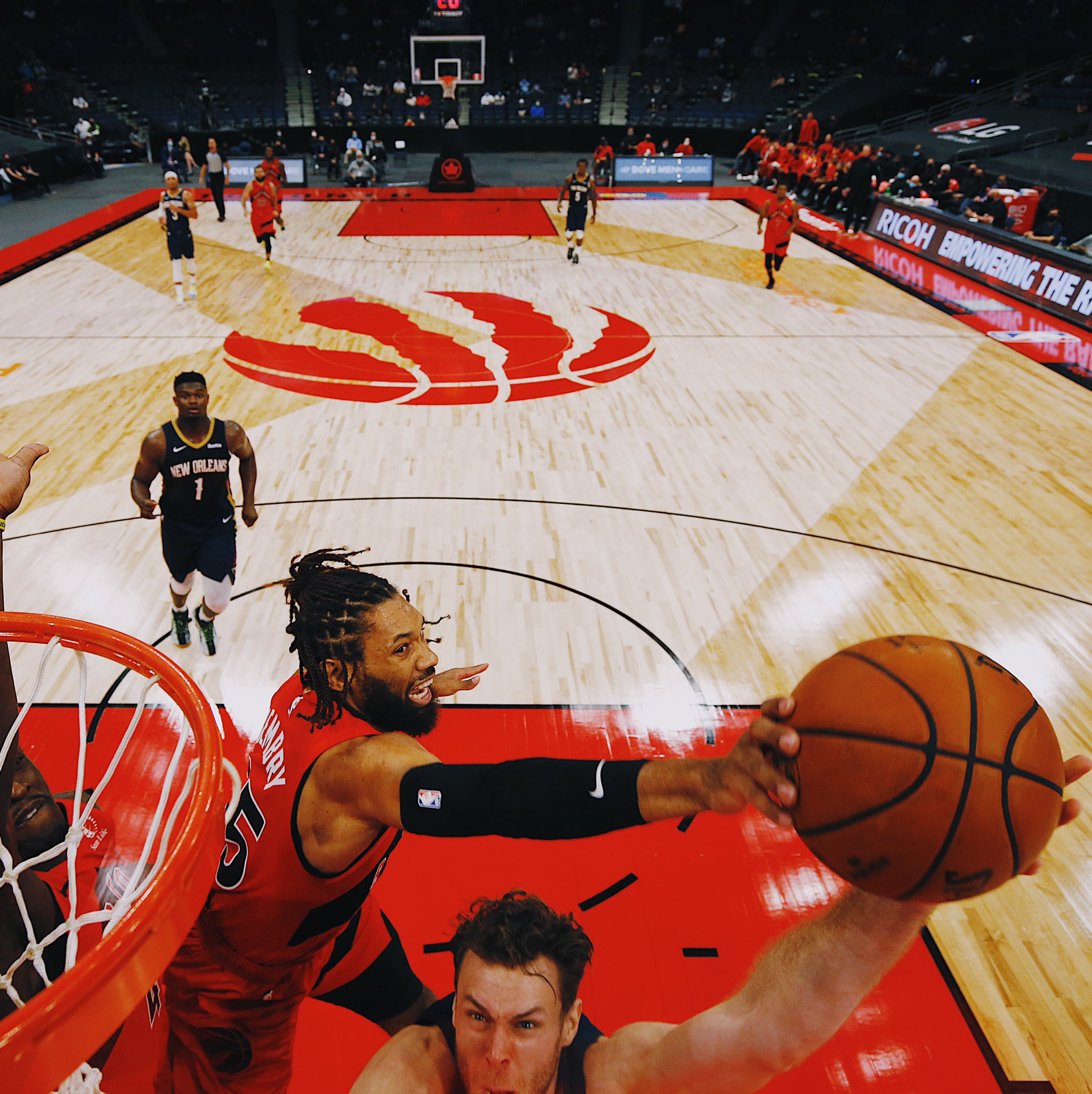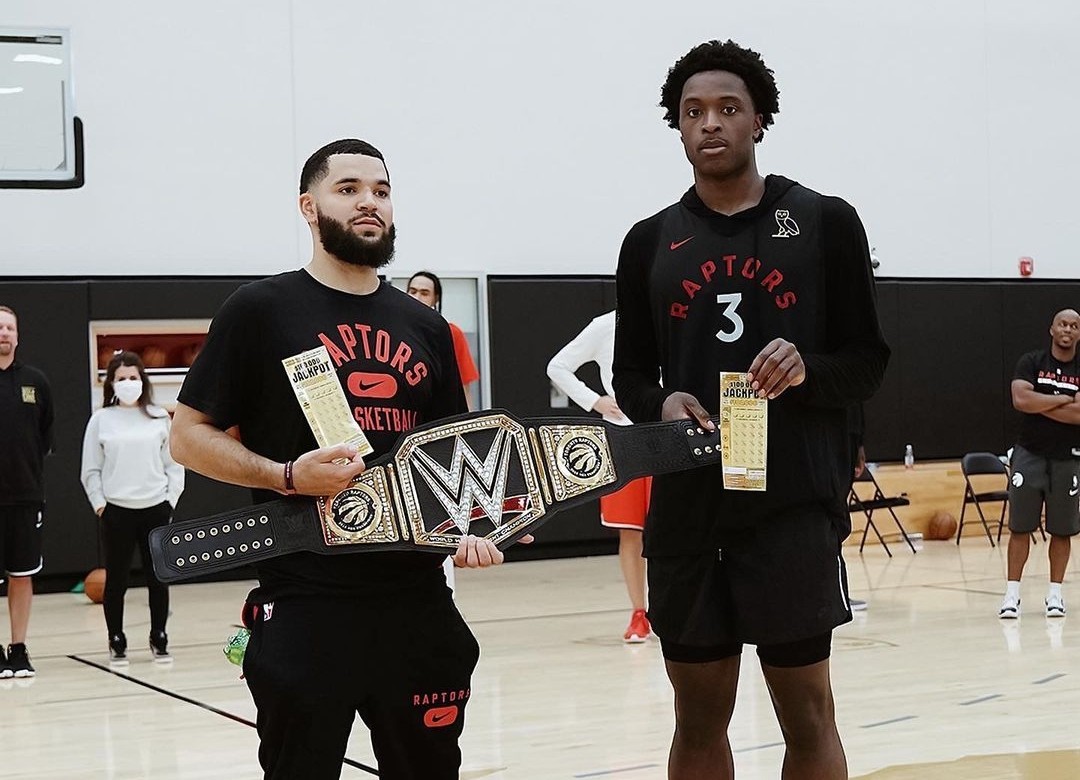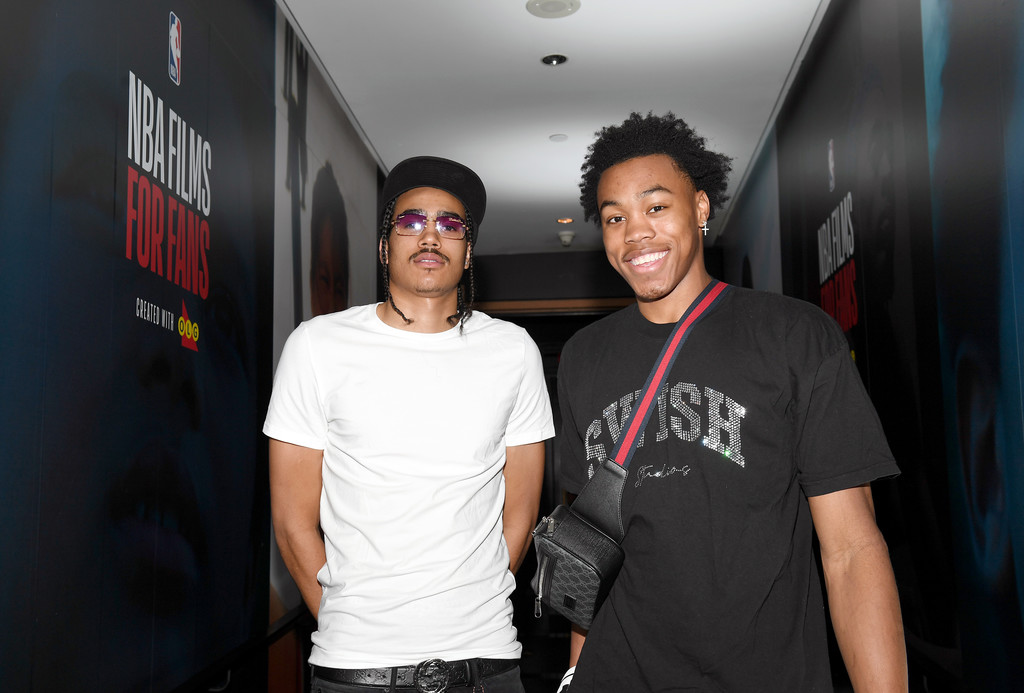This is part of a series of player reviews from the 2020-21 season. To find the remainder of the series, please click here.
There’s always a glut of players at the end of a roster, of whom expectations are diverse and often outsized, but from whom production is more or less the same. That’s often not players’ faults, as they exist in a league ruled by context; role, fit, and health can impact performance as much or more than individual skill. As a result, NBA benches cannot feature 15 players who meet or overperform expectations. As with everyone, that was the case with the Toronto Raptors in 2020-21.
Freddie Gillespie
It could be unfair to include Freddie Gillespie in this category of “the rest.” When he joined the Raptors along with Khem Birch in April, he immediately helped stabilize the center position. He only average 5.6 points and 4.9 rebounds per game, but he defended well and never quit on plays at the rim. His offensive game was a work in progress, but at times he showed solid touch on a push shots and floaters from the short midrange. He was occasionally clunky around the rim and often needed too much time to gather for shots, allowing defenses to recover, but in general he was an improvement from what the Raptors fielded before at the big position, especially in his first days with the team.
Still, his on/off numbers were putrid, as the Raptors were better on both sides of the floor with Gillespie on the bench. The offense especially cratered with him in the game. He was a project, certainly, but even though his arrival heralded stability at the big position, that had more to do with Birch than Gillespie. It was always going to be tough for him to make the roster in 2021-22. Then in Summer League, Gillespie had a disastrous showing, as he averaged 2.2 points a game in 17.2 minutes, shooting 22.7 percent from the floor. He dropped a variety of passes, showing that he’s still not ready for the speed of the game.
Toronto shouldn’t need to throw Gillespie into action this year if he does make the roster, with Birch and Precious Achiuwa ahead of him on the depth chart. He’ll have more time to develop. Still, it’s likely that his largest role with the team is in the past. For a few weeks, he was an important contributor to the rotation.
Stanley Johnson
Stanley Johnson was a Raptor for two seasons. He was sometimes brilliant on the defensive end, jumping passing lanes, stymieing individual matchups, and wreaking havoc on offenses. He was equally maddening on the offensive end, shooting 32.3 percent from deep and 45.0 percent from 2-point range in his time as a Raptor, yet often hijacking plays to isolate and throw up no-chance shots. Last year was by far his better season, as he dropped 35 points on the Chicago Bulls (who, hey!, are the ones who signed him for the 2021-22 season) and had a few other high-scoring affairs.
But it was no coincidence that Toronto went 2-13 in his 15 highest-scoring games. Johnson never added much to his offensive game, which (aside from a few hot games) was at best a non-factor and at worst an active negative to his team’s chances to score. Toronto didn’t have an offensive creator talented enough to create an efficient offense despite Johnson’s presence, and his offensive rating was horrid last year. Perhaps Chicago will be more suited to take advantage of his talents and ameliorating his weaknesses.
DeAndre’ Bembry
Here’s a list of rotation players who ended the year with the Raptors who had positive net ratings last year (in other words, with them on the court, the Raptors on averaged outscored their opponents): Chris Boucher, Fred VanVleet, OG Anunoby, Pascal Siakam, and DeAndre’ Bembry. It’s almost unbelievable that Bembry joined such a list that more or less constituted Toronto’s best players.
But Bembry did a huge number of things well for the Raptors. Even though his per-game statistics were muted, he shot almost 60 percent from 2-point range, dished 2.1 assists per game (he had one of the highest assist-to-usage rates in the entire league!), and greatly helped the defense when on the court. He didn’t shoot well from deep, but they didn’t form so big a portion of his shots that it handicapped him as an offensive player. He did so many things well other than scoring that Toronto went 5-1 in his six highest-scoring games.
I was surprised that Bembry didn’t at least have a shot to make the roster this year. But the Brooklyn Nets scooped him up, and he should be impactful there in a similar role to his 2020-21 context with the Raptors. He was solid in his time with Toronto, even if Toronto itself wasn’t. A consummate pro.
Rodney Hood
Rodney Hood didn’t spend a lot of time with the Raptors. He joined the team in the Norman Powell trade, played 17 games, and put together the worst non-Gillespie net rating on the team. Hood could create his own shots, so he perhaps could have had a useful role as a bench secondary initiator, but Toronto was not a good enough team to take advantage of that skillset. Hood also shot 35.6 percent from the field with Toronto, so there’s that, too. He’s now with the Milwaukee Bucks, where he’s a much better fit than he was with Toronto.
Aron Baynes
Aron Baynes was supposed to be the savior at the center spot after Marc Gasol and Serge Ibaka both went to Los Angeles, but instead he was never able to make a positive impact as a starter. His jumper abandoned him, going from 35.1 percent from deep the year before to 26.2 percent with Toronto. He wasn’t athletic enough to finish shots created by others. He preferred to one-handed volley rebounds into traffic rather than grabbing them with both hands like a proper center. He wasn’t ready to start for the Raptors.
To be fair, Baynes was solid as a backup center when he finally slotted into that role. The Raptors won his minutes when he started games off the bench, and lost them when he started games on the court. He shot much better from the field in such scenarios.
Baynes wasn’t ready to be a starting center on a decent team, particularly one that demands so much of its defensive players in rotation. When Toronto finally slotted Baynes into a better role, he was fine, if unspectacular. That doesn’t mean he had a good season. But it does mean the fault lies in both parties that the relationship was so disastrous. Baynes is currently unsigned.



